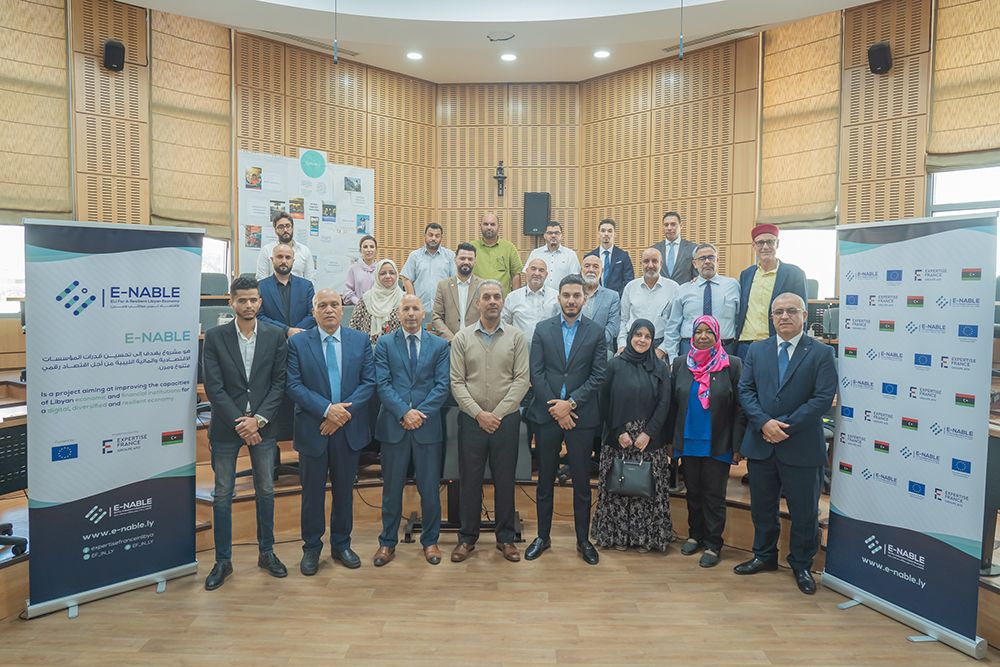News
Archive
- February 2025
- January 2025
- December 2024
- November 2024
- October 2024
- September 2024
- August 2024
- July 2024
- June 2024
- May 2024
- April 2024
- March 2024
- February 2024
- January 2024
- December 2023
- November 2023
- October 2023
- September 2023
- August 2023
- July 2023
- June 2023
- May 2023
- March 2023
- February 2023
- October 2022
- August 2022
- July 2022
- June 2022
- May 2022
- April 2022
Towards a More Diversified and Competitive Libyan Economy: Cluster Management Workshop
Building on the importance of economic diversification in driving national economic growth, supporting the private sector, and achieving sustainable development in Libya, a workshop entitled “Competitiveness and Cluster Management in Libya” was launched on Tuesday, October 29, 2024, in Tunis, in cooperation with the South Mediterranean University and presented to members of the technical team tasked with implementing the economic diversification policy project, formed by the National Economic and Social Development Board.
Dr. Mahmoud Al-Futaisi, Director General of the National Economic and Social Development Board, participated in the workshop opening virtually and praised the efforts made by the Economic Diversification Team and Expertise France, represented at the opening of the workshop by Mr. Mohamed Al-Aswad, Deputy Director of Programs. Dr. Mahmoud Al-Futaisi stressed that this cooperation and such training initiatives contribute significantly to raising national competencies, which supports efforts to achieve sustainable economic diversification in Libya.
The four-day workshop aimed to equip participants with essential skills in cluster management, competitiveness strategies, and leadership development, thereby creating a skilled workforce that supports a more diversified Libyan economy.
The training provided a range of fundamental concepts such as competitiveness and cluster management, presented case studies from other countries, and outlined appropriate tools for analyzing competitiveness in Libya. Participants applied these tools and concepts in interactive sessions to map out the most critical competitive clusters in Libya, enabling them to contribute to the growth and competitiveness of Libyan clusters and strengthen the country’s economy and diversification.
It is worth noting that this workshop is part of the E-NABLE project, funded by the European Union and implemented by Expertise France, to achieve a sustainable, diversified, and digital economic recovery in Libya.

